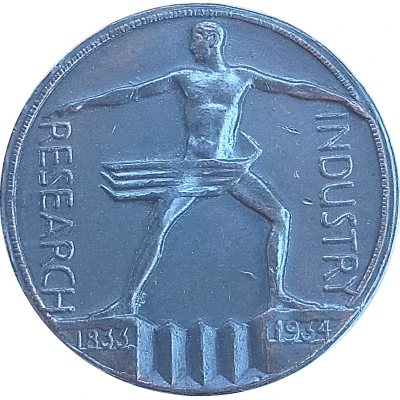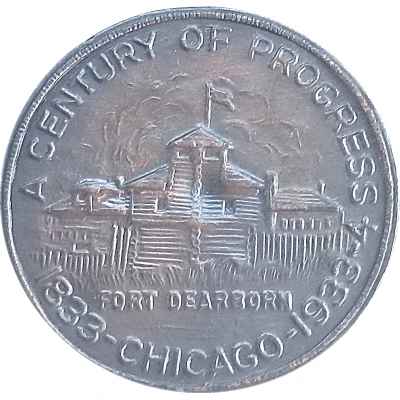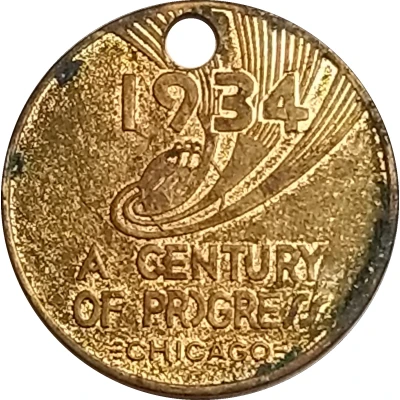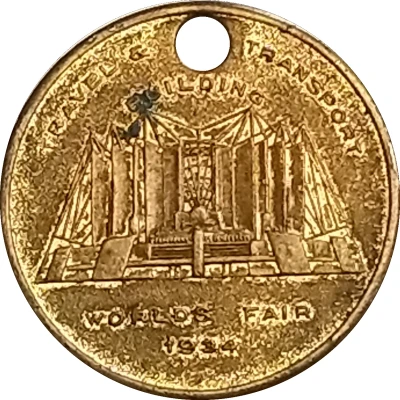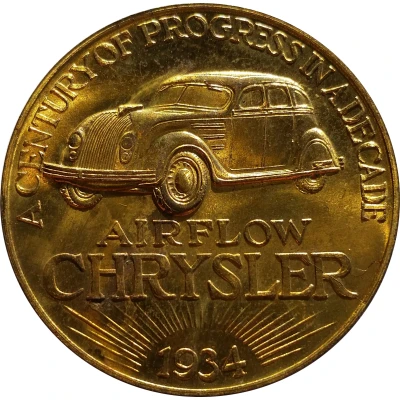
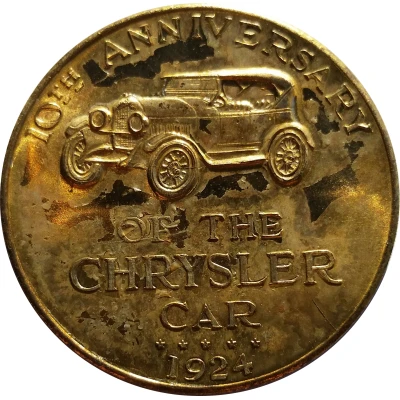

© disha41754 (CC BY)
Token - Chrysler Car 10th Anniversary 1924-1934 - Century of Progress
1934 year| Brass | 8.35 g | 31 mm |
| Location | United States |
|---|---|
| Type | Medals › Commemorative medals |
| Year | 1934 |
| Composition | Brass |
| Weight | 8.35 g |
| Diameter | 31 mm |
| Shape | Round |
| Technique | Milled |
| Orientation | Coin alignment ↑↓ |
| Updated | 2024-11-13 |
| Numista | N#98896 |
|---|---|
| Rarity index | 95% |
Reverse
Original Chrysler automobile left, date under 5 stars.
Script: Latin
Lettering:
10TH ANNIVERSARY
OF THE
CHRYSLER
CAR
1924
Edge
Plain
Comment
Century of Progress ExpositionThe Chicago Century of Progress Exposition, all jagged edges and bold colors, invited visitors to take a peek at the future. Inspired by the skyscrapers of New York, the exposition buildings housed machines and technology demonstrating what Americans could expect on the other side of the Great Depression. Life, the Exposition proclaimed, would be smooth and easy, and the technology to make it so would be accessible to everyone
....What sparked the public's imagination the most were new possibilities for rapid mobility. During the early 1930s, some people would spend weekends at airports, attracted by airplanes' speed and their limitless potential for travel. The Century of Progress Exposition put the promise of the airplane on the ground. While the Goodyear Blimp, the symbol of the Fair, hovered overhead unnoticed, visitors ogled Buckminster Fuller's Dymaxion Car No. 3 and Chrysler's Airflow in the "Wings of a Century" exhibit. In the end, these early streamlined vehicles inspired little more than curiosity in the general public; their expense and oddness proved prohibitive, and neither was a commercial success.
http://www.pbs.org/wgbh/americanexperience/features/general-article/streamliners-worldsfair/
Original Chrysler car 1924
In January 1924, Walter Chrysler launched the well-received Chrysler automobile. The Chrysler was a 6-cylinder automobile, designed to provide customers with an advanced, well-engineered car, but at a more affordable price than they might expect. (Elements of this car are traceable to a prototype which had been under development at Willys during Chrysler's tenure).[16] The original 1924 Chrysler included a carburetor air filter, high compression engine, full pressure lubrication, and an oil filter, features absent from most autos at the time.[17][18] Among the innovations in its early years were the first practical mass-produced four-wheel hydraulic brakes, a system nearly completely engineered by Chrysler with patents assigned to Lockheed, and rubber engine mounts to reduce vibration. Chrysler also developed a wheel with a ridged rim, designed to keep a deflated tire from flying off the wheel. This wheel was eventually adopted by the auto industry worldwide.
https://en.wikipedia.org/wiki/Chrysler#History
Chrysler Airflow 1934-1937
In its day, Chrysler's aerodynamic Airflow project was commonly and unfairly hailed as a failure, surpassed only in American pop culture infamy decades later by the Edsel. The two have a few things in common, not the least of which is an ardent cult following of enthusiasts today who will defend their oft-maligned cars to the death, if necessary.
In the world of Airflows, the leading source is the Airflow Club of America, which consists of about 600 Airflow owners and admirers who've been evangelizing on behalf of this groundbreaking design since 1962. And Airflow was just that--an overarching design that, at least at the outset, Walter P. Chrysler imagined would be a game changer. Thus each marque, De Soto, Chrysler and Imperial, had its own Airflows. De Soto and Chrysler had coupes and sedans, while Imperial had sedans and limos.
https://www.hemmings.com/magazine/hmn/2010/03/1934--37-Chrysler-Airflow/2941771.html
